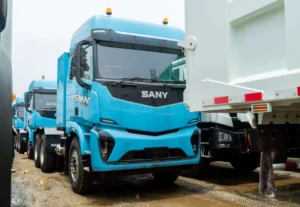Sustainable Supply Chain Transformation in Indonesia and International
Posted on August 28, 2024 by Nur Wachda Mihmidati

Sustainable supply chain has become one of the top priorities for companies in Indonesia in recent years. Along with the increasing awareness of the importance of environmentally and socially responsible business practices, many companies are now turning to integrate sustainability principles into their supply chains. This not only aims to minimize environmental impacts, but also to ensure long-term business viability.
Based on recent data from a survey conducted by HSBC Indonesia, companies in Indonesia are increasingly adopting sustainable policies as part of their operational strategies. From energy efficiency to the use of green technology, these measures are designed to create stronger, more efficient and more resilient supply chains. Digitalization plays an important role in this process, allowing companies to better understand their markets, improve connectivity, and implement better cybersecurity measures.
Supply Chain Digitalization
Companies in Indonesia are increasingly utilizing digital banking solutions to better understand their markets and industries. In a survey conducted by HSBC Indonesia, 79% of respondents identified understanding the market and industry as the top priority in using digital banking solutions. With better understanding, companies can make more informed decisions regarding their business operations and strategies. In addition, 39% of respondents indicated that connecting banking solutions seamlessly through online platforms is a top priority. This shows that companies are striving to digitally integrate various aspects of their operations to achieve higher efficiency.
Apart from integration, cybersecurity is also a major concern. A total of 31% of respondents prioritize implementing stronger cybersecurity protection. As companies expand their use of online platforms and digital services, the need for data protection and security becomes more pressing. The risk of cyber threats can have a significant impact on a company’s operations, especially when sensitive data is involved. Therefore, investing in a robust cybersecurity solution is an important step to maintain operational resilience.
Integration of Sustainability in Supply Chain
In line with the increasing awareness of environmental and social issues, companies in Indonesia are also moving towards implementing sustainable policies along their supply chains. The survey shows that 47% of companies are already implementing environmental or green policies. These policies include various initiatives to reduce the environmental impact of business operations, such as reducing carbon emissions, using renewable energy, and better waste management practices. Meanwhile, another 35% of companies plan to implement these policies within the next two years. This reflects an increasingly strong commitment to doing business sustainably and responsibly.
In addition to environmental policies, employee health and safety is also an important focus. A total of 38% of companies have implemented health and safety policies, while another 37% plan to do so in the next two years. These policies are designed to ensure that the workplace is safe for employees and health risks are minimized. Effective implementation of health and safety policies can also improve employee productivity and well-being, which in turn contributes to the long-term success of the company.
Focus Areas for Investment in Sustainable Supply Chain

Companies in Indonesia show strong interest in investing in areas that support sustainable supply chains. Three main focus areas were identified in the survey: energy efficiency, green plants and machinery, and sustainable buildings. A total of 87% of respondents plan to focus on energy efficiency, which includes the use of technologies and practices that can reduce energy consumption and operational costs. This includes the implementation of energy-efficient devices and advanced energy management systems.
A total of 80% of respondents also highlighted the importance of investing in green plants and machinery. This includes the use of equipment and production processes that minimize environmental impact, such as the use of fewer or greener raw materials, and the reduction of emissions and pollution. Meanwhile, 40% of respondents plan to focus on the construction of sustainable buildings, which includes design and construction that pays attention to efficient energy and water use and waste reduction.
Methods to Encourage Suppliers to Adopt Sustainability Policies
To ensure sustainability throughout the supply chain, many companies in Indonesia use various methods to encourage their suppliers to adopt sustainability policies. The survey shows that 51% of companies require new suppliers to comply with sustainability policies as part of their onboarding process. This ensures that the supplier is committed to following sustainable business practices from the start of the partnership.
In addition, 47% of companies require compliance with their sustainability policies as a condition of the transaction. This approach provides a direct incentive for suppliers to comply with sustainability standards, as failure to do so may result in lost business opportunities. In addition, 19% of companies incentivize payment premiums for suppliers that comply with their sustainability standards. These incentives provide extra motivation for suppliers to invest in more sustainable business practices.
Case Study of Sustainable Supply Chain Implementation
In an era of heightened environmental awareness, many global companies are now implementing sustainable supply chain. This case study will reveal how leading companies are adopting innovative practices to reduce their environmental impact and improve their operational efficiency.
Retail Industry
IKEA through IWAY Standards emphasizes strict adherence to various environmental and social aspects in their supply chain. IWAY Standards is IKEA’s supplier code of conduct that sets minimum requirements for environmental, social, and working conditions. One concrete example is their policy on hazardous and non-hazardous waste, where suppliers are required to comply with local regulations and properly record and manage waste. To increase transparency and accountability, suppliers are required to conduct IWAY internal audits at least every 12 months. This demonstrates IKEA’s commitment to sustainable compliance and reducing the environmental impact of their operations.
In addition, IKEA also focuses on reducing environmental impact with clear targets, such as reducing carbon emissions from catalog production by 26% in fiscal year 2016 compared to the previous year. This approach is also reflected in other initiatives such as the use of eco-friendly materials in packaging and efforts to minimize the use of hazardous chemicals. Through the implementation of strict standards and continuous monitoring, IKEA manages to create a supply chain that is not only efficient but also sustainable and responsible.
Technology Industry
Dell recorded significant achievements in their “Legacy of Good” sustainability plan by integrating over 10.5 million pounds of recycled plastic enclosed into their products since 2014. The initial target of using 50 million pounds of recycled plastic was achieved early in early 2017. In addition, Dell has launched more than 90 products, including flat panel monitors and desktop computers, that use covered recycled plastic. This process includes the collection, processing and use of e-waste, with the entire cycle from collection to new products in the hands of customers taking less than six months.
Dell’s initiative reflects the application of sustainable supply chain principles by prioritizing the use of environmentally friendly materials and reducing the carbon footprint. In terms of environmental impact, Dell’s closed recycling process reduces the carbon footprint by 11% compared to using virgin plastic. Since 2008, Dell has collected more than 1.76 billion pounds of used electronics and produced nearly 5,000 tons of recycled plastic from computer parts. This initiative not only saves more than USD 1 million but also supports the IT circular economy by reducing dependence on expensive virgin materials and reducing e-waste. A natural capital value evaluation showed that Dell’s recycled plastic provided 44% greater environmental benefits compared to virgin ABS plastic, with annual benefits reaching USD 1.3 million.
As a company in supply chain and fleet management solutions, TransTRACK demonstrates a strong commitment to the principle of sustainable supply chain. By applying advanced technology in its Supply Chain Integrator and Fleet Operation Optimizer, TransTRACK not only improves operational efficiency but also reduces environmental impact. Through system integration that facilitates real-time resource monitoring and management, as well as fleet optimization to reduce emissions and energy consumption, TransTRACK sets a new standard in industry sustainability. This effort reflects the company’s dedication to supporting a circular economy and ensuring that every step in the supply chain contributes to a greener and more sustainable future.
Recent Post
Topic :
 Bahasa Indonesia
Bahasa Indonesia









